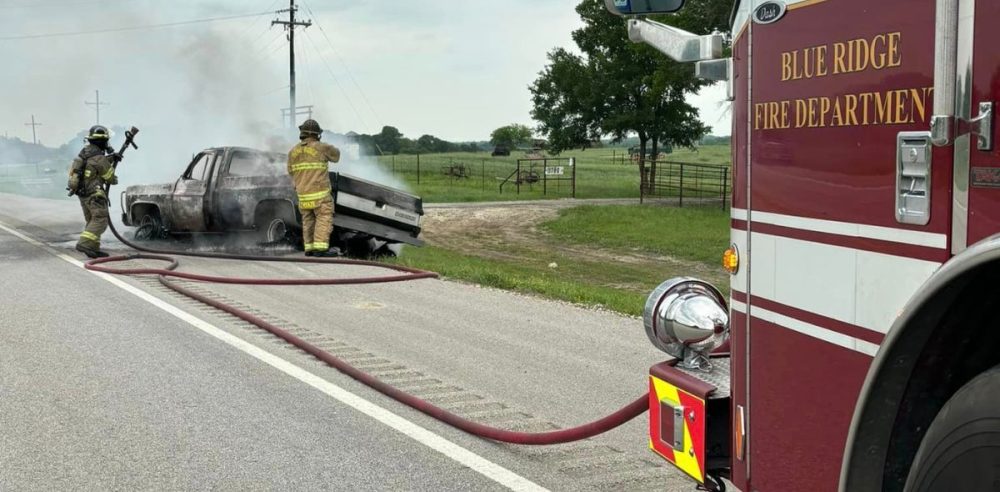Residents in rural Collin County may find themselves waiting for help for extended periods of time in an emergency situation because the fire departments that service their area are constrained by limited manpower and resources.
While inflation has driven up the price of just about everything in recent years, the Blue Ridge Volunteer Fire Department that serves parts of Collin County is still working with the same budget it had more than 10 years ago.
In addition to serving the residents of the small town of Blue Ridge, which is located about 20 miles northeast of McKinney, the Blue Ridge Fire Department also serves residents living in some unincorporated parts of Collin County — about 68 square miles, in total.
The county pays the department $80,000 per year to serve the incorporated areas, and the department receives about $44,000 per year from the city of Blue Ridge, which covers fuel, utilities, and insurance.
There is no money in the budget to have paid personnel, so the department is staffed by volunteers. Some of the crew work full-time in fire departments and EMS services in other cities and volunteer at Blue Ridge on their days off.
A large majority of the calls the department receives are for the unincorporated areas. In the nearly eight-month stretch from Jan. 1 to Aug. 26, the department responded to 80 calls in Blue Ridge and 194 calls in unincorporated areas.
“We’re almost subsidizing the county calls with city funds,” Blue Ridge Fire Chief Jason Brazil said, according to KERA News.
Serving the rural areas adds more wear and tear on the department’s already rather dilapidated vehicles and increases fuel costs. The department recently spent $40,000 to repair an engine, and there is no money in the budget at the moment to repair another vehicle’s parking brakes. A new fire truck would cost at least $2 million, so for now, the volunteer crew does the best they can with what they have.
“We have to make sure that we know how to troubleshoot thing. If something goes wrong while we’re on a scene, we need to know how to fix it,” said volunteer firefighter Alyssa Phifer, according to KERA.
Because the firefighters at Blue Ridge are unpaid volunteers, they do not stay at the station around the clock. When a call comes in, they must drive from home (or wherever they are) to the station, and then from the station to the scene of the emergency. Sometimes it may take 30 minutes or so to arrive at the scene of a rural fire call.
The extended travel allows a small fire to become a whole-house fire. A fire can double in size every two minutes, Phifer says.
If the crew is miles away on an emergency call in one of the farther away unincorporated areas, there may not be anyone available to answer a call in the city of Blue Ridge. The population growth in Collin County over the last dozen years has added to the burden on the department, increasing the demand for emergency aid.
“There’s budgetary concerns because as we’re growing, we can’t keep up with the tools we need for the services,” Collin County Fire Marshall Jason Browning told KERA.
The Melissa Fire Department quit serving unincorporated areas last year when its contract with the county ended. Other cities in the county may follow suit if Collin County does not pony up more money to support the small city fire departments.
Denton County has recently begun restructuring its approach to emergency services in its unincorporated areas, with the county taking a more active role in providing services. Brazil suggested that Collin County should follow that example.
“What’s going on over there that they can afford it, but we can’t over here?” Brazil said, per KERA. “Collin County is supposed to be one of the richest counties in Texas, but we’re not acting like it.”
Collin County administrator Yoon Kim said that county commissioners are aware of the issues and are working to resolve them.
“We want to do the right thing,” Kim told KERA. “There’s a lot of models, and there’s a lot of different ways this could go. But at this time, we just don’t have a definitive policy set yet.”


